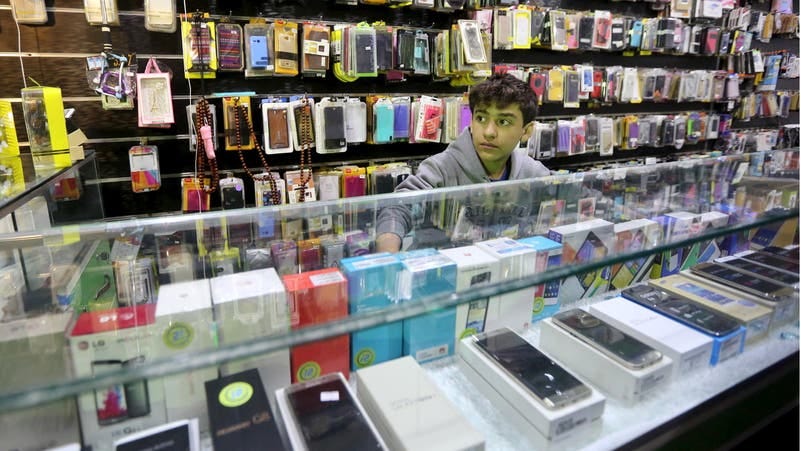Smartphones as Debt and Economic Stabilization Measures
Despite government efforts, Egyptians still use the black market and prefer to pay the tax.
Last week, the Egyptian Ministry of Finance introduced a new policy aimed at raising revenue by imposing customs duties on imported mobile phones, whether brought in by Egyptians or long-term foreign residents. Official statements from the government indicate that the policy's goal is to combat phone smuggling, trade in counterfeit phones, and strengthen local industry; however, this development can primarily be seen as an atypical application of protectionist policy aimed at national debt relief and regime stability amid Syria-inspired calls for revolution.
Egypt’s Protectionist Approach to National Debt
As of June 2024, Egypt's external debt stood at approximately $152.9 billion. This substantial debt has had a profound impact on Egypt's fiscal policy, with around two-thirds of the government's annual budget dedicated to servicing and alleviating the debt. Debt servicing consumes most funds, restricting investment in key sectors and exacerbating inflation, currency devaluation, and worsening living standards.
In response, the government has been taking creative measures to generate tax revenue and implement reforms to reduce the debt burden and stabilise the economy. One such approach has involved attracting investment from Egyptians abroad, specifically through the ambitious ‘Beit al Watan’ real estate project. This initiative invites financial investment from Egyptians wishing to build and own real estate in their homeland, including residential and service land plots, housing units, and cemeteries, all with the aim of generating dollar remittances to benefit the Egyptian economy. The tenth phase of the 2012 project is currently underway and will be announced soon. Sales have already exceeded $7 billion, marking a significant development for the Egyptian real estate sector, which contributes a substantial 20% to the country's GDP. Similarly, last month, the Ministry of Foreign Affairs announced a new initiative in collaboration with the Central Bank of Egypt (CBE) that enables Egyptian citizens abroad to open bank accounts through an embassy or consulate. This initiative further simplifies the banking process and facilitates the flow of expat remittances to Egypt, which are a vital economic contributor. Such efforts appear to be making an impact, as Prime Minister Mostafa Madbouly recently announced that Egypt repaid about $7 billion of its debts in November and December, bringing total repayments for 2024 to $38.7 billion and positioning the country for a lower due debt in the coming year.
Shortcomings
Although local smartphone manufacturers have secured major investments from international brands like Samsung and LG in recent years, cementing Egypt’s position as one of the top three smartphone markets in Africa, foreign firms have historically faced numerous challenges due to Egyptian financial policies, such as tariffs and import restrictions. Geopolitical tensions as well and supply chain insecurities encourage the government to pursue protectionism. Egypt is also interested in becoming a global trade hub and securing the domestic market is an important step towards regional and international expansion. As a broader regional conflict looms and political instability intensifies, growing calls for local production may offset the negative consequences of Egyptian protectionism.
Protectionism for political stability
The adoption of protectionist economic policies is not new in the Middle East, with countries like Turkey and Syria, particularly under the Assad regime, employing such measures to address economic and political instability. Egypt appears to be following suit in order to cultivate a more economically stable environment, one that will attract continued foreign investment from the Gulf and strengthen its role in the India-Middle East-Europe Economic Corridor (IMEC) plan. Furthermore, Egypt is seeking to market itself as a good trade hub choice for BRICS countries. Nonetheless, Egypt aims at addressing immediate financial stress rather than preventing future debt accumulation or promoting investments with an eye on preserving political stability.



